Exploring the Stages and Significance of the Mosaic Covenant
The making of the Sinai Covenant, also known as the Mosaic Covenant, is described in the book of Exodus in the Bible. It was a significant event in the history of the Israelites and marked their formal agreement with God. The stages followed in the making of the Sinai Covenant are as follows:
The making of the Sinai Covenant was a significant event in the history of the Israelites. It established their relationship with God and provided them with a set of laws and commandments to guide their lives.
Learn more:
0 Comments
Why the Exodus is important to the Israelite
THE TEN COMMANDMENTS (EXODUS 20:1 – 17)The main laws which God gave to Moses are known as the Ten Commandments/ Decalogue. It is an absolute law i.e. unconditional whereby everything had to be followed without question. The Ten Commandments were divided into two major parts.
Duties to God1. “You shall have no other gods before me”.Application
2. “You shall not make yourself a graven image”Application
3. “You shall not take the name of the Lord your God in Vain”Application
4. “Remember the Sabbath day to keep it holy”Application The Sabbath Day was instituted by God at creation God rested on this day after creation thus we should not work or involve ourselves in any work.
Duties towards man5. “Honour your father and mother that your days may be long”Application God’s gift of life is passed on through our parents as they take care and bring up children. God takes care of us through our parents.
6. “You shall not kill”Application It is God alone who gives life and it should be Him alone to take it. The life of a person is sacred. Christians are called upon to preserve, respect and protect life. 7. “You shall not commit adultery”.Application
8. “You shall not steal”Application
9. “You shall not bear false witness against your neighbor”Application
10. “You shall not covet your neighbor’s property”.Application
list-the-qualities-of-moses-shown-during-his-call-at-mount-sinai.html On Sale On Sale JUNIOR SECONDARY EXAMS WITH ANSWERS: AGRICULTURE AND NUTRITION GRADE 7 MID OF TERM ONE 2024On Sale On Sale History Notes Form 1, Form 2, Form 3 and Form 4 in Slideshow ('Powerpoint', '.pptx')THE WORSHIP OF THE ISRAELITES IN THE WILDERNESS(EX 20:22 – 26, 23:14 – 20)
A. Sacrifices and offerings
1. burnt offerings/holocaust
2. Atonement/ sin offering
3. Peace offering/ communion sacrifice/ fellowship offering
4. Gift offering
5. Meal offering/ drink offering
6. Incense offering
B. Festivals
A festival is a celebration commemorating a past event.
There were a number of festivals in the Israelite community. These included: 1. The Passover/Feast of unleavened bread
The Passover commemorates the divine act of redemption of the Jews from their bondage in Egypt.
The Passover feast reminded the Israelites that they were free, redeemed people while the Lords Suppers is to remind Christians of their forgiveness of sins. The death of Jesus set Christians free from sins. 2. The feast of weeks/ Pentecost.
This feast originally marked the end of the wheat harvest.
Later it was conducted 50 days from the Sabbath following the Passover hence name Pentecost. 3. The Feast of Tabernacles.
This feast marked the end of agricultural year.
It took place in autumn when the fruits had been safely gathered/ harvested. C. Altars
Altars marked an earthly meeting place between God and the people.
D. Prayer and Songs
People communicated to God through prayer and song. This was mostly used by priests and their leaders e.g. Moses and Joshua.
E. Holy day of worship
The Israelites set a day of worship. Every week they worked for six days and on the seventh day they rested and worshipped the Lord/ Sabbath rest.
F. The Tent of Meeting (EXODUS 26)
REASONS AGAINST KINGSHIP IN ISRAEL AND REASONS WHY SAMUEL WAS AGAINST KINGSHIP IN ISRAEL THE RENEWAL OF THE SINAI COVENANT - EXODUS 34:1 -35
EXODUS 34:1-35
Exodus 34 New Revised Standard Version (NRSV)
Moses Makes New Tablets
God revealed his nature to Moses as:
The Israelites were given conditions to fulfill after the renewal these are:
Giving of more promises by God
Reasons why Moses was reluctant to accept God’s call
CRE NOTES AND SYLLABUS How Christians show respect to God
CRE NOTES AND SYLLABUS (Exodus 24:1 – 8)
CRE NOTES AND SYLLABUS significance of the call of moses
list-the-qualities-of-moses-shown-during-his-call-at-mount-sinai.html Introduction TO TEN PLAGUES EXODUS 7-11
1. The plague of blood (Exodus 7:14 – 25)
2. Plague of frogs (Exodus 8:1 – 15)
3. Plague of gnats (Exodus 8:16 – 19)
4. Plague of flies (Exodus 8:20 – 32)
5. Death of livestock (Exodus 9:1 – 7)
6. Plague of boils (Exodus 9:8 – 12)
7. Plague of hail (Exodus 9:13 – 35)
8. Plague of Locusts (Exodus 10:1 – 20)
9. Plague of darkness (Exodus 10:21 – 29)
10. Death of first-born sons (Exodus 12:1 – 31)
Related Searches ...
Attributes of God learnt during the call of Moses
What are the attributes of God to Moses
Attributes of God learnt from the ten plagues
The ten plagues (Exodus 7:14 -11: 1-10)
1. God is almighty/all powerful/ omnipotent and no other forces or power can challenge him. The magicians could not match his powers and accepted that God’s powers are great (Exodus 8:18 – 19).
The Plague of Blood [Exodus 7:19-21]
19 The Lord said to Moses, “Tell Aaron, ‘Take your staff and stretch out your hand over the waters of Egypt—over the streams and canals, over the ponds and all the reservoirs—and they will turn to blood.’ Blood will be everywhere in Egypt, even in vessels[a] of wood and stone.” 20 Moses and Aaron did just as the Lord had commanded. He raised his staff in the presence of Pharaoh and his officials and struck the water of the Nile, and all the water was changed into blood. 21 The fish in the Nile died, and the river smelled so bad that the Egyptians could not drink its water. Blood was everywhere in Egypt.
Exodus 8:18-19 New International Version (NIV)
18 But when the magicians tried to produce gnats by their secret arts, they could not. Since the gnats were on people and animals everywhere, 19 the magicians said to Pharaoh, “This is the finger of God.” But Pharaoh’s heart was hard and he would not listen, just as the Lord had said. 2. God empowers the people he sends to perform miracles and do his work. He gave Moses the rod with which to work and cause the plagues.
Exodus 7:20-21 New International Version (NIV)
20 Moses and Aaron did just as the Lord had commanded. He raised his staff in the presence of Pharaoh and his officials and struck the water of the Nile, and all the water was changed into blood. 21 The fish in the Nile died, and the river smelled so bad that the Egyptians could not drink its water. Blood was everywhere in Egypt. 3. God is determined to fulfill his plans/to save his people no matter how hard the task may appear to the human eye. He does not give up on his people. Exodus 8:22, 9:6, 10:23.
Exodus 8:22 New International Version (NIV)
22 “‘But on that day I will deal differently with the land of Goshen, where my people live; no swarms of flies will be there, so that you will know that I, the Lord, am in this land. Exodus 9:6 New International Version (NIV) 6 And the next day the Lord did it: All the livestock of the Egyptians died, but not one animal belonging to the Israelites died. Exodus 10:23 New International Version (NIV) 23 No one could see anyone else or move about for three days. Yet all the Israelites had light in the places where they lived. 4. God gives everyone a chance to repent. He forgives the repentant. Each time Pharaoh promised to release the Israelites, God relieved the Egyptians from the plagues.
Exodus 8:8-14
8 Pharaoh summoned Moses and Aaron and said, “Pray to the Lord to take the frogs away from me and my people, and I will let your people go to offer sacrifices to the Lord.” 9 Moses said to Pharaoh, “I leave to you the honor of setting the time for me to pray for you and your officials and your people that you and your houses may be rid of the frogs, except for those that remain in the Nile.” 10 “Tomorrow,” Pharaoh said. Moses replied, “It will be as you say, so that you may know there is no one like the Lord our God. 11 The frogs will leave you and your houses, your officials and your people; they will remain only in the Nile.” 12 After Moses and Aaron left Pharaoh, Moses cried out to the Lord about the frogs he had brought on Pharaoh. 13 And the Lord did what Moses asked. The frogs died in the houses, in the courtyards and in the fields. 14 They were piled into heaps, and the land reeked of them. 15 But when Pharaoh saw that there was relief, he hardened his heart and would not listen to Moses and Aaron, just as the Lord had said. 5. God is God of justice/ he punishes the wrong doer and protects the oppressed. He afflicted the Egyptians who had enslaved his people. He spared the Israelites.
The Plague on Livestock [Exodus 9:1-7 New International Version (NIV)]
9 Then the Lord said to Moses, “Go to Pharaoh and say to him, ‘This is what the Lord, the God of the Hebrews, says: “Let my people go, so that they may worship me.” 2 If you refuse to let them go and continue to hold them back, 3 the hand of the Lord will bring a terrible plague on your livestock in the field—on your horses, donkeys and camels and on your cattle, sheep and goats. 4 But the Lord will make a distinction between the livestock of Israel and that of Egypt, so that no animal belonging to the Israelites will die.’” 5 The Lord set a time and said, “Tomorrow the Lord will do this in the land.” 6 And the next day the Lord did it: All the livestock of the Egyptians died, but not one animal belonging to the Israelites died.7 Pharaoh investigated and found that not even one of the animals of the Israelites had died. Yet his heart was unyielding and he would not let the people go. 6. God fulfill his promises/ He is faithful. The Israelites finally left Egypt as God had promised Exodus 3:7 – 10, Genesis 15:13 – 14, 26:3 – 4.
Exodus 3:7-10 [New International Version (NIV)]
7 The Lord said, “I have indeed seen the misery of my people in Egypt. I have heard them crying out because of their slave drivers, and I am concerned about their suffering. 8 So I have come down to rescue them from the hand of the Egyptians and to bring them up out of that land into a good and spacious land, a land flowing with milk and honey—the home of the Canaanites, Hittites, Amorites, Perizzites, Hivites and Jebusites. 9 And now the cry of the Israelites has reached me, and I have seen the way the Egyptians are oppressing them. 10 So now, go. I am sending you to Pharaoh to bring my people the Israelites out of Egypt.” 7. God expects total obedience and faith from the people he sends.
Exodus 7:1-7 [New International Version (NIV)]
7 Then the Lord said to Moses, “See, I have made you like God to Pharaoh, and your brother Aaron will be your prophet. 2 You are to say everything I command you, and your brother Aaron is to tell Pharaoh to let the Israelites go out of his country. 3 But I will harden Pharaoh’s heart, and though I multiply my signs and wonders in Egypt, 4 he will not listen to you. Then I will lay my hand on Egypt and with mighty acts of judgment I will bring out my divisions, my people the Israelites. 5 And the Egyptians will know that I am the Lord when I stretch out my handagainst Egypt and bring the Israelites out of it.” 6 Moses and Aaron did just as the Lord commanded them. 7 Moses was eighty years old and Aaron eighty-three when they spoke to Pharaoh. 8. God is a loving/ caring God. He sees the plight and suffering of his people and works to release them from their suffering.
The Plague of Flies [Exodus 8: 20-21]
20 Then the Lord said to Moses, “Get up early in the morning and confront Pharaoh as he goes to the river and say to him, ‘This is what the Lord says: Let my people go, so that they may worship me. 21 If you do not let my people go, I will send swarms of flies on you and your officials, on your people and into your houses. The houses of the Egyptians will be full of flies; even the ground will be covered with them. 9. More powerful that the Egyptian gods.
The Plague of Gnats [Exodus 8: 16-19]
16 Then the Lord said to Moses, “Tell Aaron, ‘Stretch out your staff and strike the dust of the ground,’ and throughout the land of Egypt the dust will become gnats.” 17 They did this, and when Aaron stretched out his hand with the staff and struck the dust of the ground, gnats came on people and animals. All the dust throughout the land of Egypt became gnats. 18 But when the magicians tried to produce gnats by their secret arts, they could not. Since the gnats were on people and animals everywhere, 19 the magicians said to Pharaoh, “This is the finger of God.” But Pharaoh’s heart was hard and he would not listen, just as the Lord had said. 10. God was aware of the problems of the Israelites.
The Plague on Livestock [Exodus 9:1-4)
9 Then the Lord said to Moses, “Go to Pharaoh and say to him, ‘This is what the Lord, the God of the Hebrews, says: “Let my people go, so that they may worship me.” 2 If you refuse to let them go and continue to hold them back, 3 the hand of the Lord will bring a terrible plague on your livestock in the field—on your horses, donkeys and camels and on your cattle, sheep and goats. 4 But the Lord will make a distinction between the livestock of Israel and that of Egypt, so that no animal belonging to the Israelites will die.’” 11. Determined to save his people.
Exodus 3:7-8 [New International Version (NIV)]
7 The Lord said, “I have indeed seen the misery of my people in Egypt. I have heard them crying out because of their slave drivers, and I am concerned about their suffering. 8 So I have come down to rescue them from the hand of the Egyptians and to bring them up out of that land into a good and spacious land, a land flowing with milk and honey—the home of the Canaanites, Hittites, Amorites, Perizzites, Hivites and Jebusites. 12. God was working through Moses. This strengthened faith of the Israelites on Moses their liberator
The Plague of Darkness [Exodus 10:21-29]
21 Then the Lord said to Moses, “Stretch out your hand toward the sky so that darkness spreads over Egypt—darkness that can be felt.” 22 So Moses stretched out his hand toward the sky, and total darkness covered all Egypt for three days. 23 No one could see anyone else or move about for three days. Yet all the Israelites had light in the places where they lived. 24 Then Pharaoh summoned Moses and said, “Go, worship the Lord. Even your women and children may go with you; only leave your flocks and herds behind.” 25 But Moses said, “You must allow us to have sacrifices and burnt offerings to present to the Lord our God. 26 Our livestock too must go with us; not a hoof is to be left behind. We have to use some of them in worshiping the Lord our God, and until we get there we will not know what we are to use to worship the Lord.” 27 But the Lord hardened Pharaoh’s heart, and he was not willing to let them go. 28 Pharaoh said to Moses, “Get out of my sight! Make sure you do not appear before me again! The day you see my face you will die.” 29 “Just as you say,” Moses replied. “I will never appear before you again.” Christian values learnt from the call of Moses
list-the-qualities-of-moses-shown-during-his-call-at-mount-sinai.html Explain 8 elements of model covanent in lifeElements of covenant
Problems Moses faced as he led the Israelites during the Exodus
CRE NOTES AND SYLLABUS Why did the Israelites demand for an Idol / possible reasons for breaking the Covenant?
Effects of worshipping the Idol / Bull
-the-sinai-covenant-moses.html THE BREAKING OF THE SINAI COVENANT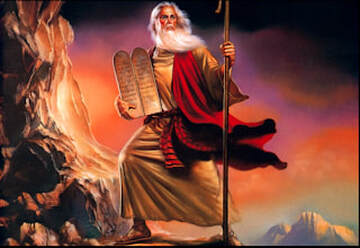
Reasons why the Israelites broke the covenant while at Mt. Sinai
Summary of the ways Israelites worshipped God in the wilderness
Lessons learnt about the nature of God from the contest at Mt. Carmel
Lessons learned by Christians about the nature of God from the Exodus
THE SINAI COVENANT - THE CALL OF MOSES (EXODUS 3:1-22) - K.C.S.E C.R.E NOTES
EXODUS 3:1-22
Exodus 3 - New International Version (NIV)
Moses and the Burning Bush
3 Now Moses was tending the flock of Jethro his father-in-law, the priest of Midian, and he led the flock to the far side of the wilderness and came to Horeb, the mountain of God. 2 There the angel of the Lord appeared to him in flames of fire from within a bush. Moses saw that though the bush was on fire it did not burn up. 3 So Moses thought, “I will go over and see this strange sight—why the bush does not burn up.” 4 When the Lord saw that he had gone over to look, God called to him from within the bush, “Moses! Moses!” And Moses said, “Here I am.” 5 “Do not come any closer,” God said. “Take off your sandals, for the place where you are standing is holy ground.” 6 Then he said, “I am the God of your father, the God of Abraham, the God of Isaac and the God of Jacob.” At this, Moses hid his face, because he was afraid to look at God. 7 The Lord said, “I have indeed seen the misery of my people in Egypt. I have heard them crying out because of their slave drivers, and I am concerned about their suffering. 8 So I have come down to rescue them from the hand of the Egyptians and to bring them up out of that land into a good and spacious land, a land flowing with milk and honey—the home of the Canaanites, Hittites, Amorites, Perizzites, Hivites and Jebusites. 9 And now the cry of the Israelites has reached me, and I have seen the way the Egyptians are oppressing them. 10 So now, go. I am sending you to Pharaoh to bring my people the Israelites out of Egypt.” 11 But Moses said to God, “Who am I that I should go to Pharaoh and bring the Israelites out of Egypt?” 12 And God said, “I will be with you. And this will be the sign to you that it is I who have sent you: When you have brought the people out of Egypt, you will worship God on this mountain.” 13 Moses said to God, “Suppose I go to the Israelites and say to them, ‘The God of your fathers has sent me to you,’ and they ask me, ‘What is his name?’ Then what shall I tell them?” 14 God said to Moses, “I am who I am. This is what you are to say to the Israelites: ‘I am has sent me to you.’” 15 God also said to Moses, “Say to the Israelites, ‘The Lord, the God of your fathers—the God of Abraham, the God of Isaac and the God of Jacob—has sent me to you.’ “This is my name forever, the name you shall call me from generation to generation. 16 “Go, assemble the elders of Israel and say to them, ‘The Lord, the God of your fathers—the God of Abraham, Isaac and Jacob—appeared to me and said: I have watched over you and have seen what has been done to you in Egypt. 17 And I have promised to bring you up out of your misery in Egypt into the land of the Canaanites, Hittites, Amorites, Perizzites, Hivites and Jebusites—a land flowing with milk and honey.’ 18 “The elders of Israel will listen to you. Then you and the elders are to go to the king of Egypt and say to him, ‘The Lord, the God of the Hebrews, has met with us. Let us take a three-day journey into the wilderness to offer sacrifices to the Lord our God.’ 19 But I know that the king of Egypt will not let you go unless a mighty hand compels him. 20 So I will stretch out my hand and strike the Egyptians with all the wonders that I will perform among them. After that, he will let you go. 21 “And I will make the Egyptians favorably disposed toward this people, so that when you leave you will not go empty-handed. 22 Every woman is to ask her neighbor and any woman living in her house for articles of silver and gold and for clothing, which you will put on your sons and daughters. And so you will plunder the Egyptians.” Covenants in modern lifeIntroduction to Exodus
Israelites New Understanding of the Nature of God
Through the teachings of Moses and their personal experience, the Israelites learnt the following about the nature of God:
Importance of covenants in modern life
|
AuthorAtika School Team Archives
October 2023
Categories
All
|
|
Primary Resources
College Resources
|
Secondary Resources
|
Contact Us
Manyam Franchise
P.O Box 1189 - 40200 Kisii Tel: 0728 450 424 Tel: 0738 619 279 E-mail - sales@manyamfranchise.com |
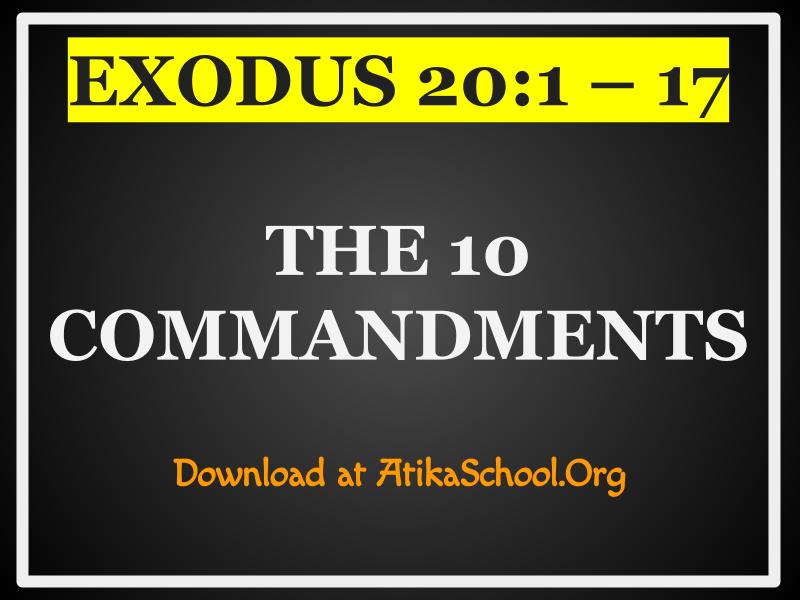
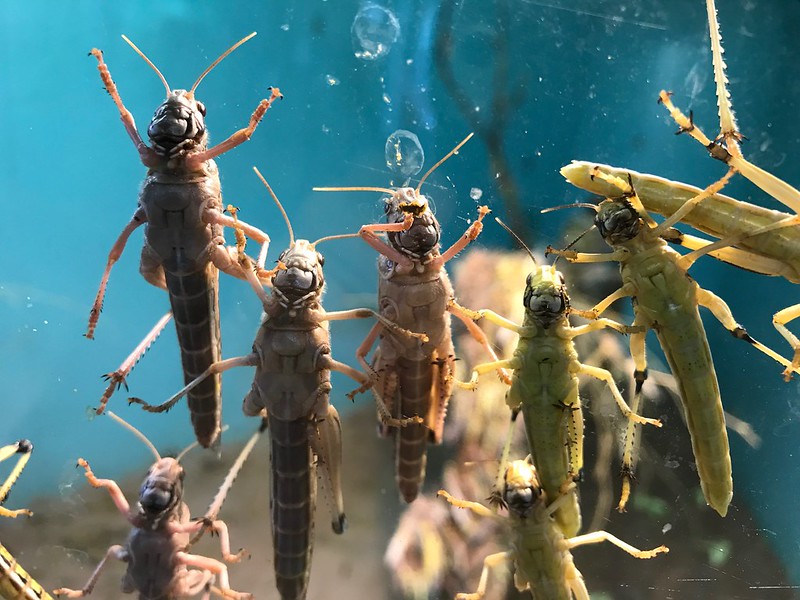
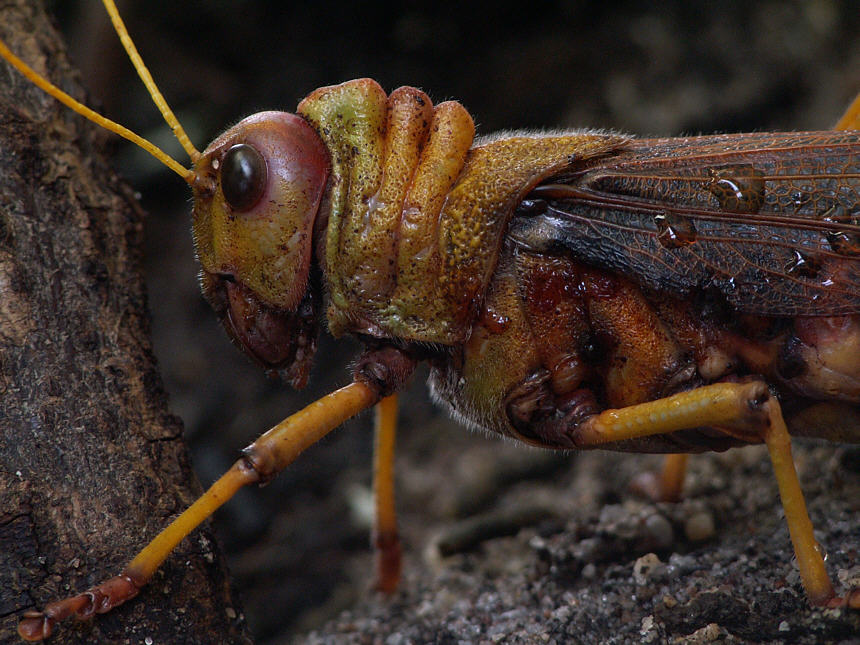
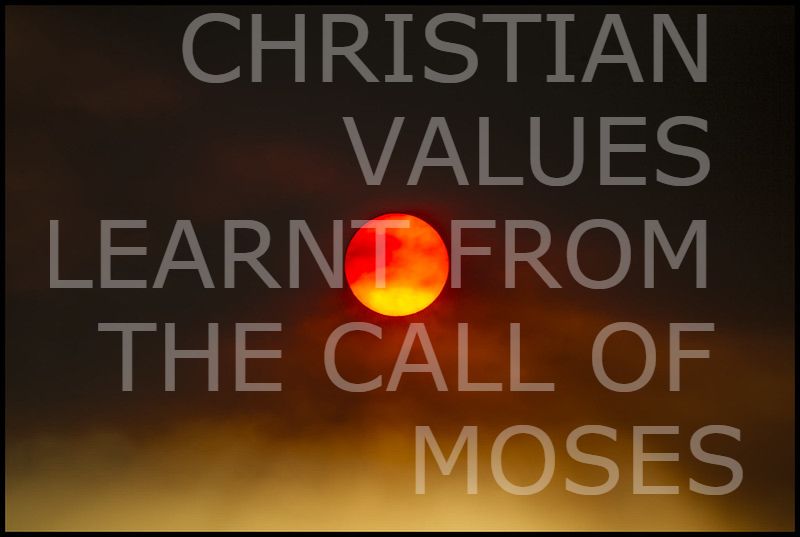
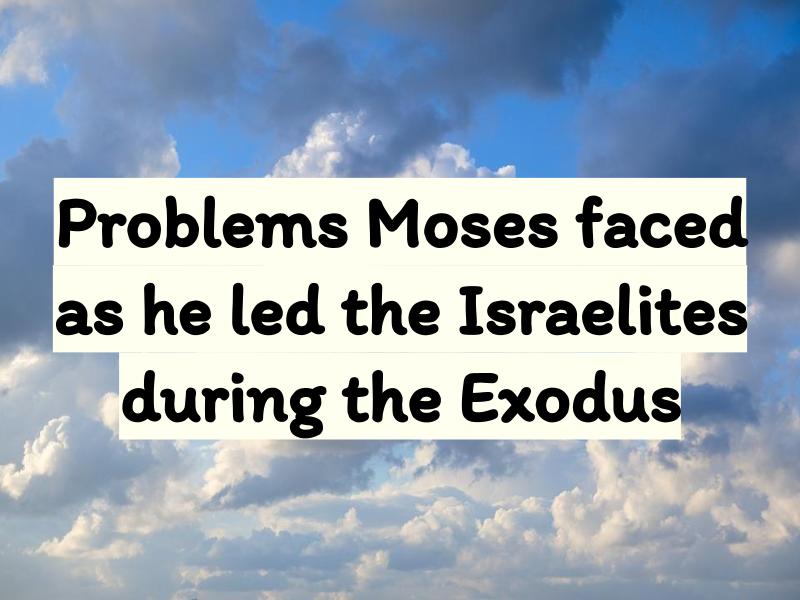
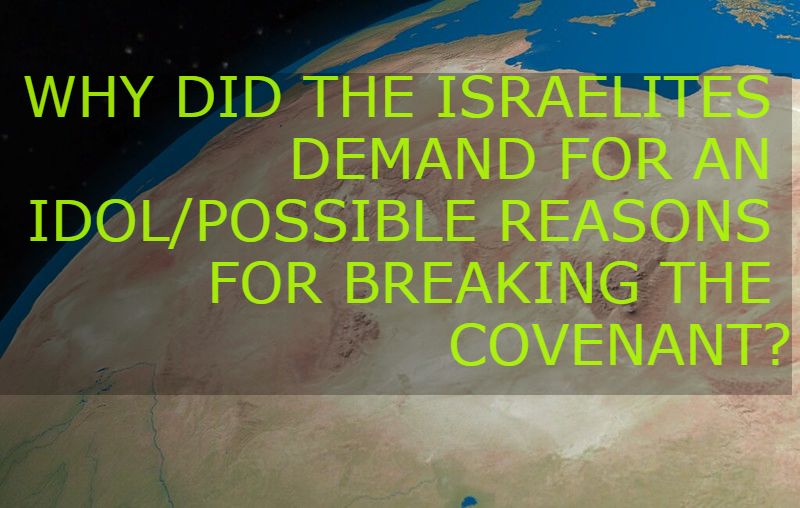
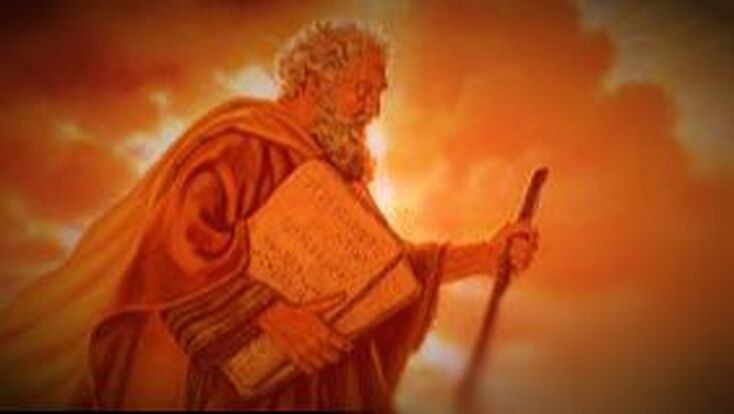
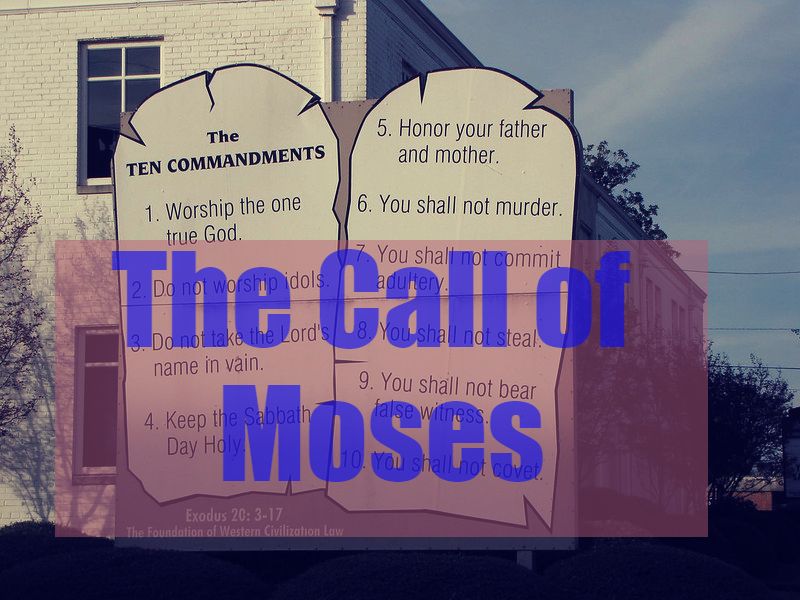

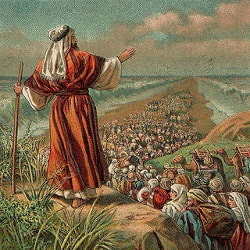
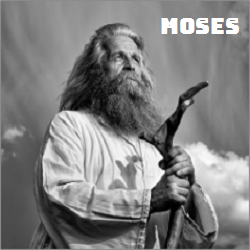
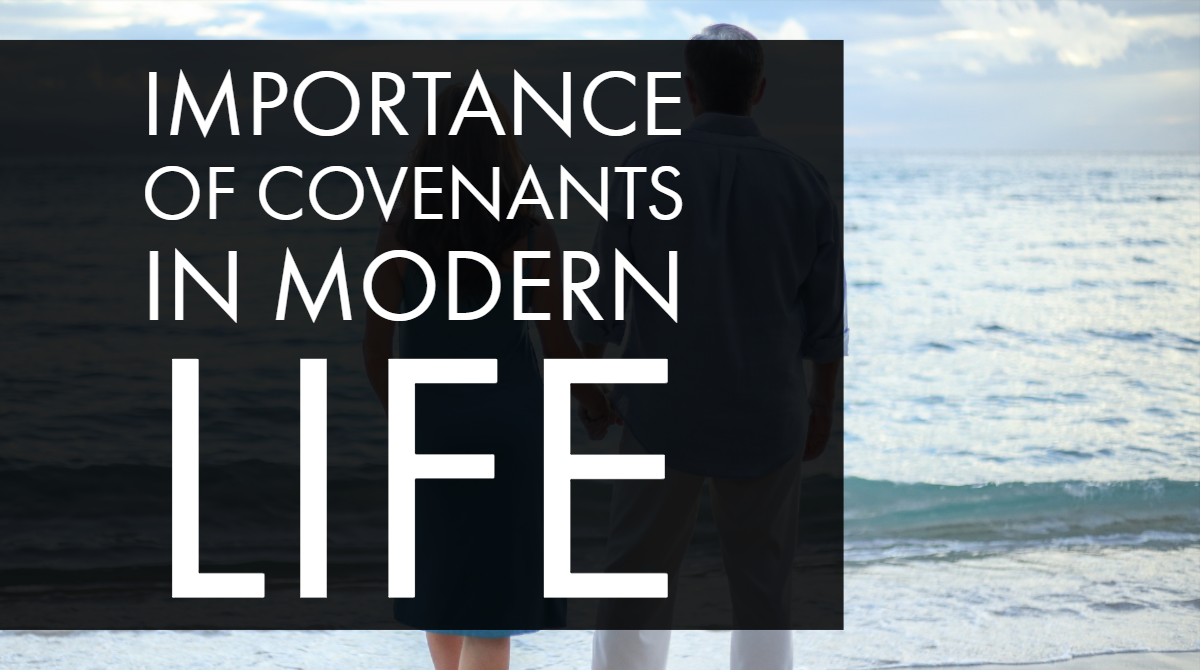
 RSS Feed
RSS Feed

